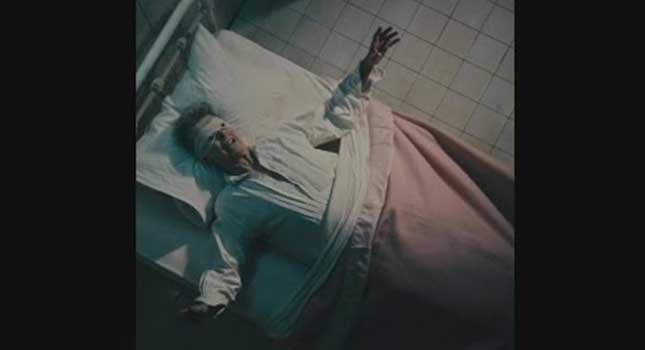
David Bowie in the 1960s
This is when Bowie first descended to Earth, but it was a pretty long and slightly tortured road for him as he went from one band to another. While his debut single, Liza Jane, didn’t fly all that well, and his first solo outing, The Laughing Gnome, and later debut album, David Bowie, went the same way, he eventually broke out with the release of Major Tom in 1969. It coincided with the impending launch of the Apollo 11 launch, although it has gone on to have just as much impact outside of the heady space race excitement of the 1960s.
’69 also saw him release his first big album, which was also called David Bowie in the UK, before going on to be renamed Space Oddity in 1972. It was a folk rock and psychedelia fond farewell to the decade that also gave us The Beatles, The Rolling Stones, The Kinks and The Who and it was the start of his own rise to equal their contribution to music.
David Bowie in the 1970s
Having tried a few guises throughout the 1960s in a bid to find the right music to make a name for himself, he spent the whole of the 70s reinventing himself both musically and personally. From a visual perspective we had everything from the glam, dresses and androgyny of Ziggy to the gaunt, slick-back and stylishly dressed Thin White Duke. His music kick started glam rock, delivered brilliance with rock and roll, soul, and funk and took impressive influence from Krautrock, minimalism, ambient and pop elements.
His album hit list from the ’70s is phenomenal, starting with The Man Who Sold The World (1970), Hunky Dory (1971), The Rise And Fall of Ziggy Stardust And The Spiders From Mars (1992), Aladdin Sane (1973), Diamond Dogs (1974), and Young Americans (1975) and closing out on Station To Station (1976), Low (1977), Heroes (1977) and Lodger (1979). The list of singles is even more ground shaking with the likes of The Man Who Sold The World, Changes, Starman, Suffragette City, The Jean Genie, Rebel Rebel, Diamond Dogs, Young Americans, Fame, Golden Years, TVC 15, Sound And Vision, and Heroes to name but a selection of his various masterpieces from the disco decade.
David Bowie in the 1980s
While the 1980s would see fewer releases than the seventies, it still contained a fair few gems with his 1981 collaboration with Queen on Under Pressure and his role as Jareth the Goblin King in Labyrinth in 1986. His first album of the decade, Scary Monsters (And Super Creeps) featured art rock, new wave and post punk with singles that included the sublime Ashes To Ashes, Fashion and title track Scary Monsters (And Super Creeps). It was followed by Let’s Dance in 1983, which took Bowie in more dance direction with epic singles, Let’s Dance, China Girl, and Modern Love.
Tonight (1984) combined pop, dance and elements of rock, Never Let Me Down (1986) returned him to art rock and Tin Machine took him in hard rock directions.
David Bowie in the 1990s
The 90s saw him finishing off his hard rock direction with Tin Machine II in 1991, swirling rock, soul and electronica in Black Tie White Noise in 1992 and penning the soundtrack to TV show, The Buddha of Suburbia in 1993. His output continued pretty strongly with Outside in 1995, which included singled The Hearts Filthy Lesson, Strangers When We Meet and Hallo Spaceboy.
There was still time in the 1990s for a little more reinvention with the industrial rock, electronica, drum and bass, jungle and techno that made up Earthling in 1997. Hours was Bowie’s final album of the 90’s and it saw him turn to pop rock with singles, Thursday’s Child, The Pretty Things Are Going to Hell, Survive and Seven.
David Bowie in the 21st century
Only four Bowie albums have graced the 21st century, but they have continued to demonstrate the massive talent of the star gazing, cat-eyed musical cornucopia. He made a big comeback in 2002 with the quality of Heathen, which featured singles, Slow Burn, Everyone Says ‘Hi’ and I’ve Been Waiting for You, and followed it up a year later with Reality, which garnered more critical praise. However, it went on to be another ten years before he’d put out his next batch of new material.
2013 saw the exceptional, The Next Day, arrive as though out of nowhere to fly in the face of the reports of ill health and while those reports have now turned out to be true it felt like an inventive flash of brilliant potential when it was released. The recent announcement of Blackstar gave us a little too much hope that the rumours weren’t quite as dark as they’d made out, which meant the news today came as much more of a hard knock. However, it does make for a final farewell from the duke of the second hand, Micky Mouse, space racing world.
Having written all of that, we can’t help but feel a mote of depression at how childish and inane our attempts at a tribute seem against the sheer spectacular of David Bowie’s life. He created more of our favourite songs than any other artist and we’ll always have a massive back catalogue to go back to any time we need a refresh of the essence of great music.


